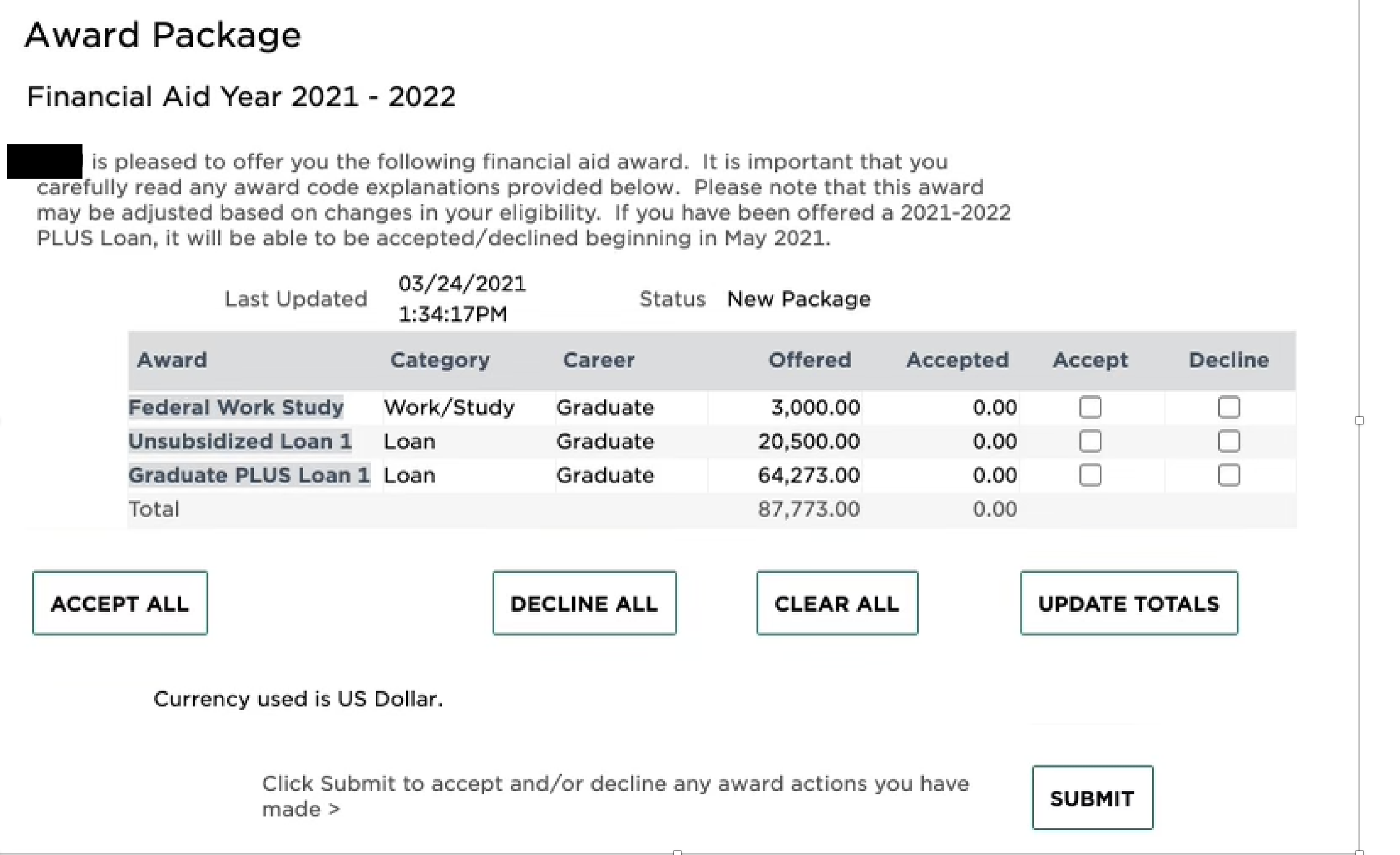You have /5 articles left.
Sign up for a free account or log in.
My older daughter’s boyfriend plans to get his master’s degree. His goal is to work in the area of public policy or politics -- public service/mission-driven work to support a progressive agenda. A master’s is critical for career mobility in his field.
In watching his application process unfold, I’ve been amazed by the financial side of master’s programs.
This is a young person who will be supporting himself through grad school. He is entering a good profession, one that he is well suited for. But his is not a career path that will make anyone wealthy.
Below is one of the award packages that he was offered.

What this "award package" amounts to is $84,773 in debt. (He turned them down.)
This particular school is expensive. Private. Located in an urban area. A high-quality master’s program.
Creating impactful, transformative and immersive educational programs is incredibly expensive. Having professors who are writing the books, and are networked into professional circles, is a highly positive advantage for students.
Quality is costly. I want the very best educational programs possible -- including master’s programs.
Looking at this award package, however, I can’t help but wonder if there is a better way.
The reality of master’s programs is that most awards are loans. There is little in the way of tuition discounting, scholarships and need-based assistance available in most master’s programs.
The growth of master’s debt is a trend that I’ve written about in the past. In that piece, I wondered if schools from across the postsecondary ecosystem should be prioritizing the investigation of low-cost scaled online graduate programs.
Is a master’s program in a non-high-income-earning profession worth going $84,00 in debt?
Can you imagine higher ed making an ecosystemwide pivot to lower-cost online programs?
What would be lost if we made that change?
Is it possible to construct the immersive and transformative master’s program that $87,000 buys you within the limitations of a $30,000 degree?
Who is leading the charge to create high-quality but affordably priced master’s degrees?




